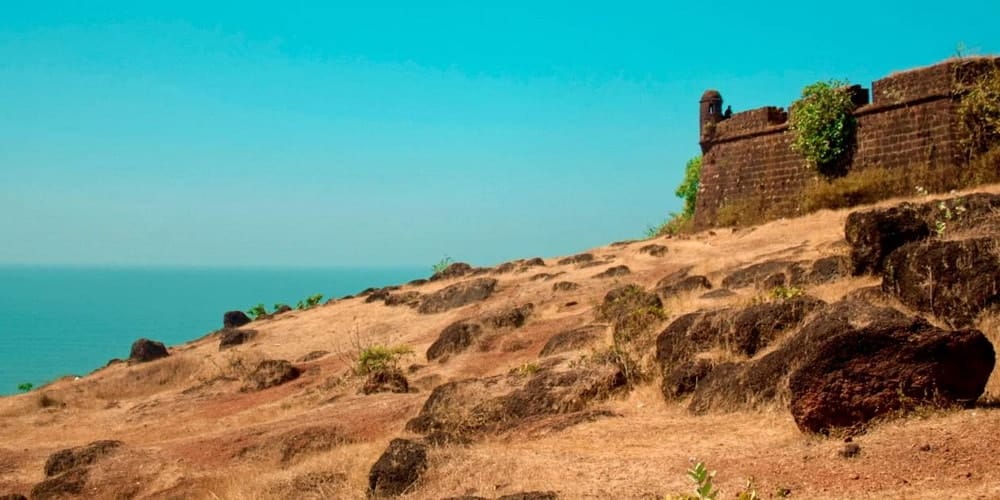
Situated approximately 10 kilometers from Mapusa, this red-laterite fortress was originally constructed by the Portuguese in 1617 atop the remains of an older Muslim structure. Initially designed as a border outpost, the fort faced numerous raids by Hindu forces throughout the 17th century before eventually being abandoned by the Portuguese in 1892.
Although the fort now lies in ruins, visitors can still spot remnants such as the entrances to two underground tunnels, which once served as lifelines for besieged defenders. Scattered across the southern slopes, a few Muslim tombstones, believed to predate colonial times, add to the historical intrigue. However, the highlight for most visitors remains the breathtaking panoramic views of Anjuna and Vagator beaches from the fort’s vantage point.
The Bardez region of North Goa was ceded to the Portuguese in 1543, but the area’s security remained under constant threat from various adversaries, including Bahmani kings, Maratha warriors, and local chieftains. To safeguard their territory, the Portuguese built multiple fortifications, one of which was Chapora Fort, constructed in 1617—just five years after work began on Fort Aguada. The location was well-connected, with buses frequently running between Mapusa and nearby Anjuna and Vagator beaches, stopping near the fort.
In 1684, the fort fell into the hands of the Maratha ruler Sambhaji, but the locals faced ongoing conflicts with the Marathas. By 1717, the Maratha forces withdrew, allowing the Portuguese to reclaim the fort and rebuild it with improvements, including underground tunnels to ensure safe escapes during emergencies.
Despite its fortifications, Chapora Fort changed hands again in 1739, when the Marathas recaptured it. However, just two years later, in 1741, the Portuguese regained control when the northern taluka of Pednem was ceded to them.
The fort’s prominence began to decline, and by 1892, the Portuguese abandoned it entirely. Today, only remnants of the once-grand structure remain, but its history and charm endure. Visitors often combine their exploration of this historic site with a stay in unique accommodations. If you’re looking for options like Airbnb Goa with private pool, it’s the perfect opportunity to enjoy a luxurious stay while uncovering Goa’s rich heritage.
Goa is known for its vibrant goa nightlife that combines beachside parties, electrifying clubs, and laid-back shacks. Whether you’re into dancing all night or enjoying live music, Goa offers something for everyone.
Goa offers a range of stay options, from beachfront resorts to cozy retreats. For those seeking privacy and comfort, a rental villa in Goa provides the perfect setting. These villas are ideal for families and groups, offering spacious accommodations, modern amenities, and a serene atmosphere, all while being conveniently close to Goa’s popular beaches and attractions.
WhatsApp us